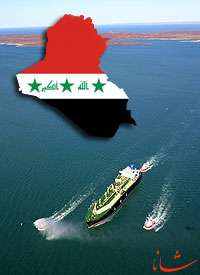Ron Mobed, president and chief operating officer of IHS Energy, said Tuesday the study is the first detailed overview of
The report, expected to be released in the next few weeks, used experts in
IHS found that
The U.S. Geological Survey has estimated the country"s additional reserves at 45 billion barrels.
The western region currently has little to no oil and gas production, contributing to fears among Anbar residents that they will be left with little more than date groves and sand while the Kurds and Shiite regions of the north and south divide the vast oil wealth.
The IHS estimate on the potential reserves in that region are based on four wells drilled in the area in 2002 and 2003 by
Mobed acknowledged it wasn"t a firm figure.
"There"s going to be a big error bar on this," he said.
Not counting
But years of neglect have resulted in shut-ins in oil fields, significantly reducing their output. That reduction has been magnified by repeated insurgent attacks on the country"s vast oil infrastructure, including pipelines and refineries.
If companies felt safe sending workers to Iraq and investing money there, Iraq could again match or exceed production levels it had before the first Gulf war, Mobed said.
Before the U.S.-led invasion of Iraq, the country was producing 2.5 million to 3 million barrels per day, a level that has since tapered off to about 2 million barrels per day.
The report will not deal with the political problems in Iraq or speculate on when the situation may improve, Mobed said.
"When the time comes for people to feel sufficiently comfortable to make investments there, that"s when the clock starts on achieving those production numbers," he said.
The IHS report said most of the current production comes from the south because facilities in the north are subject to sabotage attacks.
Discounting such attacks, however, most of the oil exports are generally routed through the south -- where pipeline capacity is much greater -- and loaded on to tankers. The northern route, which links the fields of Kirkuk to Ceyhan, in Turkey, has a significantly smaller capacity.
The map-based report, originally set to be released Wednesday, was delayed so new information could be added. Mobed said that wouldn"t change production estimates included in an overview released to the public.
A version of the report that does not include the production estimates will be sold to energy companies.
The report is being completed as the Iraqi government works on legislation that is expected to allow energy companies to sign contracts to explore the country"s untapped oil reserves.
Because of the war, major Western firms still expected to wait five years or more before actually beginning large-scale production.
Some analysts think
PIN/AP


Your Comment